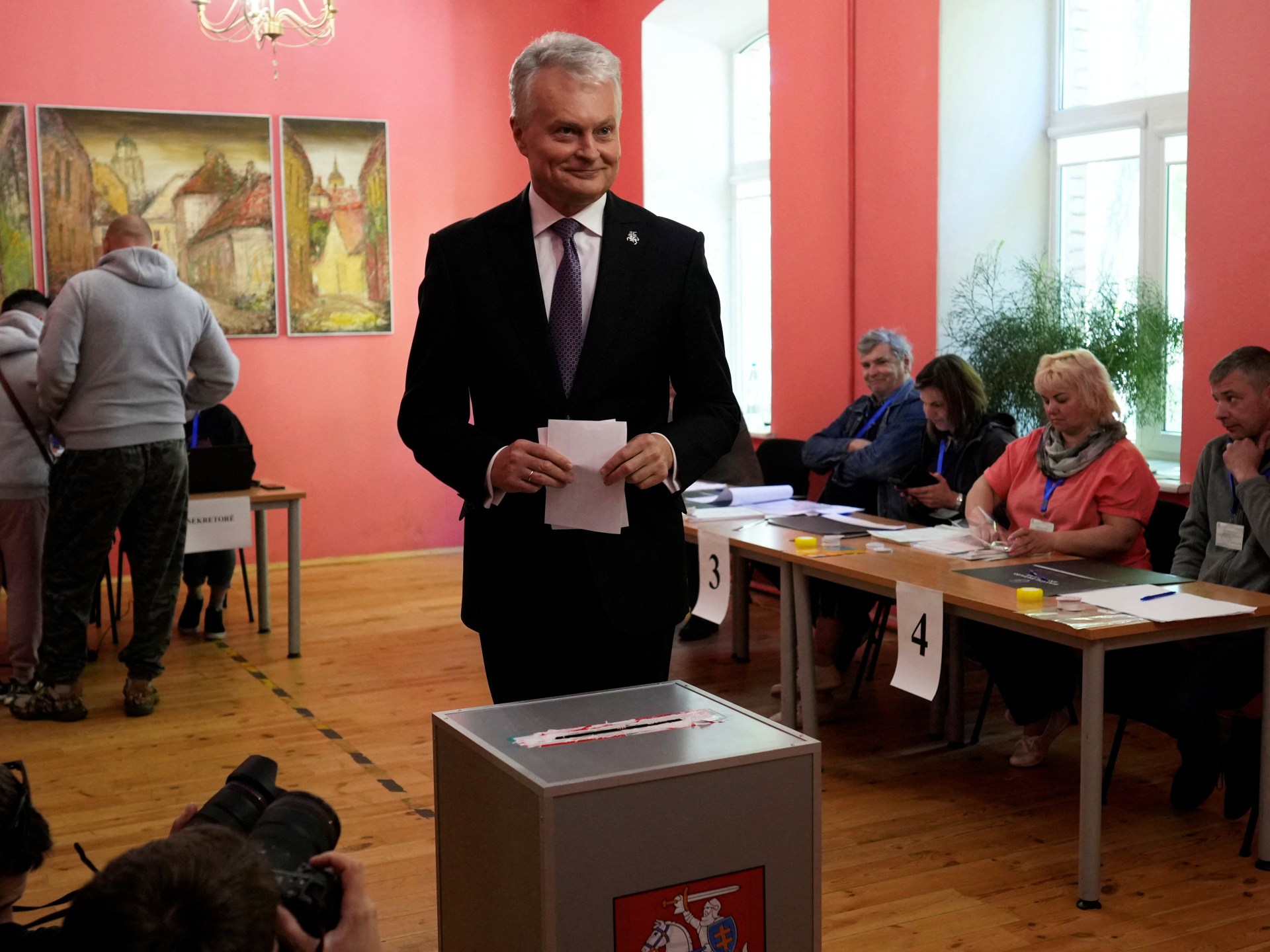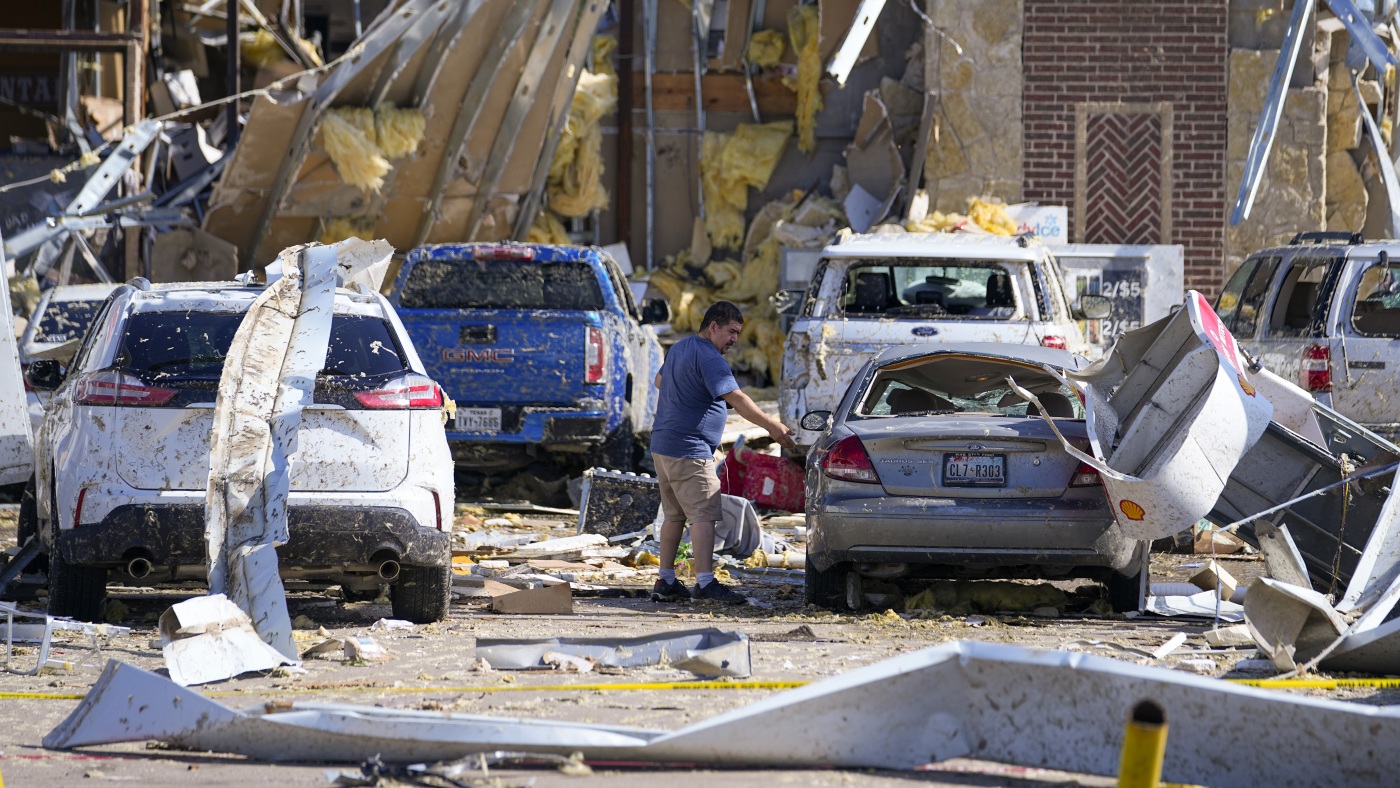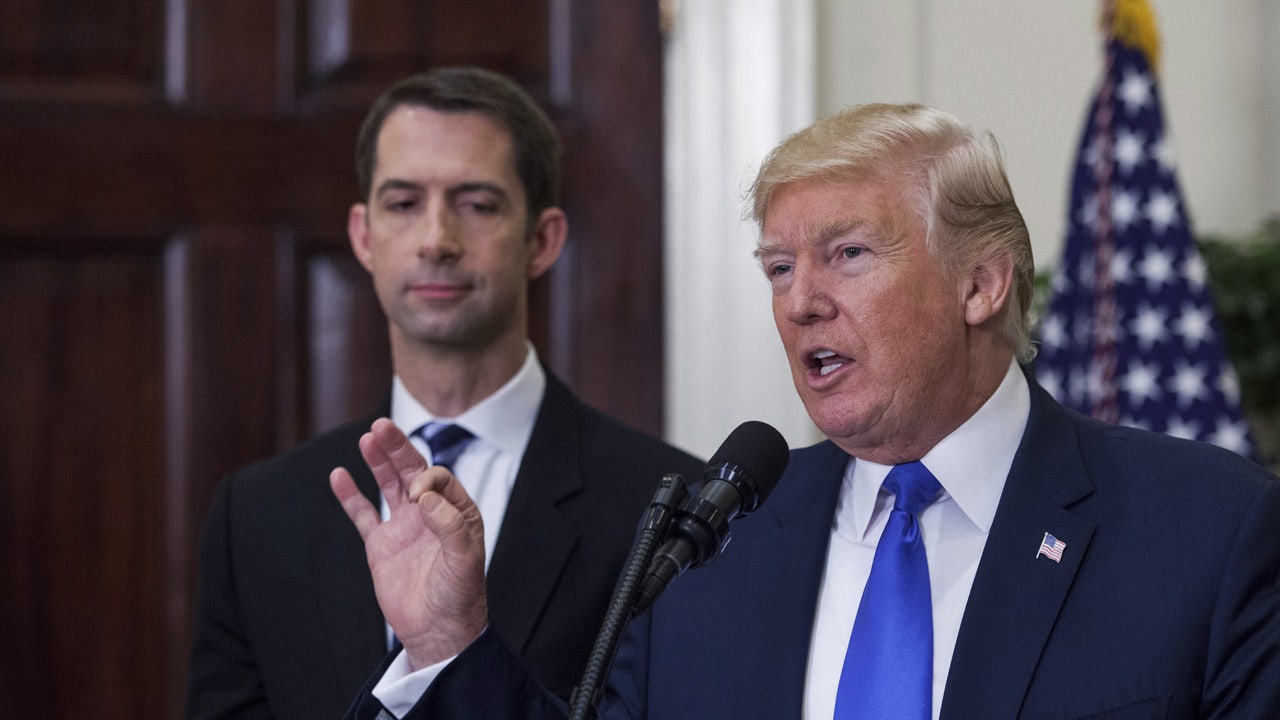World
State of the Union: Ukraine ammo failure as Israel-Hamas war rages on
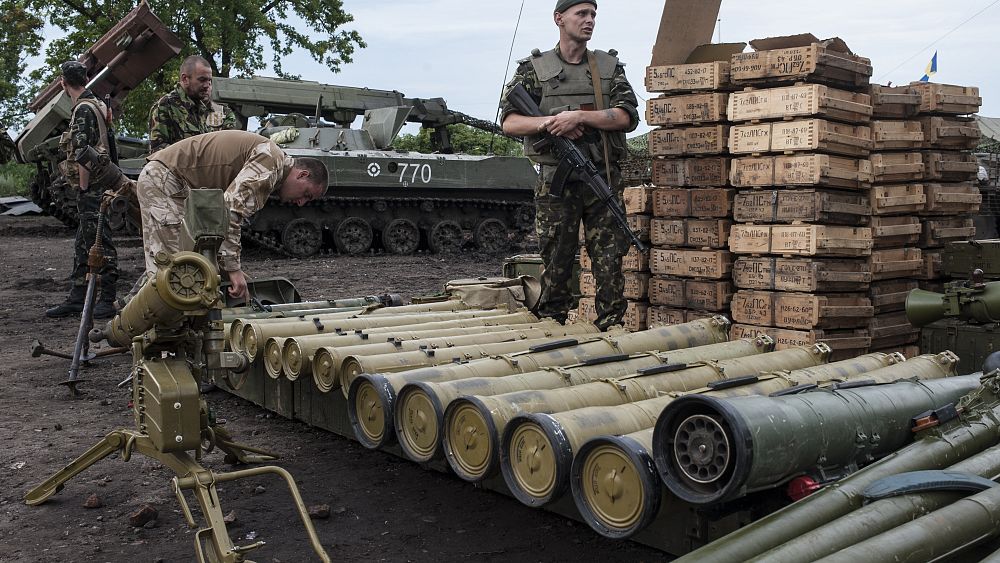
European Union countries acknowledged this week that they are well on their way to failing Ukraine when it comes to providing military support.
Earlier this year, EU leaders promised to provide one million rounds of ammunition to the Ukrainian frontline by springtime next year in what would have amounted to a serious ramping up of production.
But the bloc is finding it tough to come up with the goods.
At a meeting in Brussels this week, Germany’s defense minister, Boris Pistorius, was brutally honest, saying that the promise of one million rounds of ammunition was a pipe dream from the beginning, he said.
“The correct question would be whether one million was ever realistic,” Pistorius told reporters on Wednesday.
“There were voices who said, ‘Be careful, one million is easy to decide on and the money is there, but the production has to be there too.’ Unfortunately, the cautionary voices are now right.
“We have made a major contribution with our framework agreements and will continue to do so. We are in discussions with the arms industry. Production must be ramped up and accelerated.”
Israel-Hamas war rages on
The other conflict that Europe is struggling to deal with these days is, of course, the war between Israel and Hamas.
More than the one in Ukraine, this war has revealed deep divisions not only between EU governments but also within our societies.
And on Thursday, the EU’s top diplomat, Josep Borrell, reiterated from Israel his call for civilian lives in Gaza to be protected as he started a five-day tour of the region.
The High Representative’s visit to Israel kicked off with a visit to Kibbutz Be’eri, located only 3 kilometers away from Gaza, where at least 130 people including women, children, and babies were killed by Hamas militants on 7 October. At least 1,200 Israelis were killed in the terrorist attack with a further 240 people kidnapped.
“I understand the fear and pain of the people who have been attacked, slaughtered, kidnapped. I understand your rage. But let me ask you not to be consumed by rage,” Borrell said.
“I think that’s what the best friend of Israel can tell you. What makes the difference between a civilized society and a terrorist group is the respect for human life,” he added.
He also once more backed Israel’s right to self-defence within the limits of international humanitarian law, called for Hamas — which the EU and US consider to be a terrorist organisation — to be defeated and for all the hostages to be freed without conditions.
Glyphosate gets ten more years
In contentious news this week, the European Commission announced on Thursday that it was approving the use of the controversial chemical substance glyphosate across the EU for another decade after member states failed to reach an agreement.
“The Commission, based on comprehensive safety assessments carried out by the European Food Safety Authority (EFSA) and the European Chemicals Agency (ECHA), together with EU Member States, will now proceed with the renewal of the approval of glyphosate for a period of 10 years, subject to certain new conditions and restrictions,” it said in a statement.
“These restrictions include a prohibition of pre-harvest use as a desiccant and the need for certain measures to protect non-target organisms,” it added.
The EU executive was granted the power to approve its own proposal after experts from member states on Thursday morning failed, for the second time, to reach a qualified majority in favour or against the plan first presented in September.
This came after the EFSA said in a July assessment that it had found “no critical areas of concern” for the renewal of use beyond 15 December, when the current five-year approval was due to expire.
The decision to use glyphosate at the national level remains, however, in the hands of each individual government.
No EU country has a blanket ban on glyphosate although some, including Austria, France, the Netherlands, Belgium, Luxembourg and Germany, have rolled out partial bans by prohibiting its use in certain areas or by households.
Glyphosate is a herbicide introduced in the 1970s used to eliminate weeds that invade agricultural crops and public spaces. It has been a source of controversy since the World Health Organization’s cancer agency concluded in 2015 that it was probably carcinogenic to humans.
The Commission reiterated in its latest communiqué that the EFSA screened 16,000 published studies, 2,000 of which were considered potentially relevant, as well as 300 additional studies brought to its attention during the public consultation phase to deliver its assessment.
It added that if new evidence emerges that indicates that the approval criteria are no longer fulfilled, it would launch a new review and “take action immediately to amend or withdraw the approval if this is scientifically warranted.”
But NGO Pesticide Action Network said that the Commission’s plans to renew approval on its own would breach the EU Pesticide Law which states that a precautionary principle must be observed when there is no clear scientific consensus over a policy suspected of carrying risk of causing harm to the public or the environment.
“We regret that the Commission turns its back to independent science and citizens’ concerns and plans to re-approve this dangerous herbicide for another 10 years,” Angeliki Lysimachou, Head of Science and Policy at Pesticide Action Network Europe, said.
“There is alarming evidence highlighting the cancer risks associated with glyphosate, along with the myriad of other reported adverse effects,” she also said.
AI summit sparks controversy
This week, the Web Summit took place in Lisbon, one of the biggest tech events in the world, following the resignation of its CEO for suggesting, in a tweet, that Israel committed war crimes in Gaza.
This prompted a boycott of the Web Summit by big names like Google, Meta, Siemens and Intel.
The whole affair briefly distracted the conference from its main topic: Artificial Intelligence – a challenge to our societies that cannot be underestimated.
“I think that AI is going to be transformational in our lives,” Katherine Maher, the new CEO of Web Summit said this week.
“Some of it is happening already and some of it is yet to come. From my perspective, how we use AI, how we govern AI, how we ensure that our humanity is at the forefront of AI, in that it works to make our societies better, is the most important imperative.”
The world is starting to regulate AI though, including the EU and the US.
Victoria Espinel, CEO of The Software Alliance, an industry group representing software companies in the United States and also an advisor to President Biden on AI as head of the National Artificial Intelligence Advisory Committee told Euronews that regulations need to be flexible.
“It’s a very busy time for AI regulation, which is fantastic and I would say to policymakers around the world, not just the United States and the EU, but around the world, focusing on the most significant risks that we are facing today, risks that can be addressed, I think, is what policymakers should prioritise,” she said in an interview.
“I think there are great attempts happening in the United States, in Europe and other places to have a risk-based approach that is flexible and the last thing I would say is making sure that it is flexible enough that it will work for the long term because innovation is going to continue to move forward and so we need regulation that will be future-proof.

World
Kremlin condemns NATO boss's appeal for Ukraine to use Western arms in Russia

World
Memorial Day ceremony held in Baghdad to honor US Army soldiers killed in Iranian-backed drone attack

U.S. Military personnel stationed in Baghdad, Iraq held a Memorial Day service Monday to honor the three U.S. Army soldiers who were killed in a drone attack in Jordan earlier this year.
Combined Joint Task Force Operation Inherent Resolve presented the ceremonial wreath at the Memorial Day ceremony at the Union III base, in Baghdad’s Green Zone. Those in attendance paid their respects to the fallen service members.
U.S. Army Maj. Gen. J.B. Vowell, Combined Joint Task Force – Operation Inherent Resolve Commanding General, writes the name of a fallen service member on the Memorial Day wall during a ceremony at Union III in Baghdad, Iraq, May 27, 2024. (U.S. Army)
Staff Sgt. William Rivers, 46, Sgt. Kennedy Sanders, 24, and Sgt. Breonna Moffett, 23, were killed Jan. 28 after a drone attack by an Iranian proxy group hit Tower 22, a small U.S. outpost in northeast Jordan, on the Iraq, Syria, Jordan tri-border, where they were stationed.
BIDEN ADMIN REVERSES COURSE, GRANTS PERMIT FOR CATHOLIC GROUP’S MEMORIAL DAY MASS AT NATIONAL CEMETERY

L-R: Sgt. William Rivers, Spc. Breonna Moffett, and Spc. Kennedy Sanders. (Fox News )
The soldiers had been stationed at Tower 22 just across the border from Syria to support the mission to defeat ISIS.
At its height, over 100,000 people lived there, blocked by Jordan from entering into the kingdom at a time when concerns about infiltration by the extremist group were rampant. Those concerns grew out of a 2016 car bomb attack there, that killed seven Jordanian border guards.

Operation Inherent Resolve soldiers stand in formation and salute the United States flag during a Memorial Day ceremony at Union III in Baghdad, Iraq, May 27, 2024. (U.S. Army)
The camp has dwindled in the time since to some 7,500 people because of a lack of supplies, per United Nations estimates.

The Memorial Day Wall at Union III in Baghdad, Iraq, May 27, 2024. (U.S. Army)
The base began as a Jordanian border observation outpost, then saw an increased U.S. presence after American forces entered Syria in late 2015. The small installation includes U.S. engineering, aviation, logistics and security troops with about 350 U.S. Army and Air Force personnel deployed there.
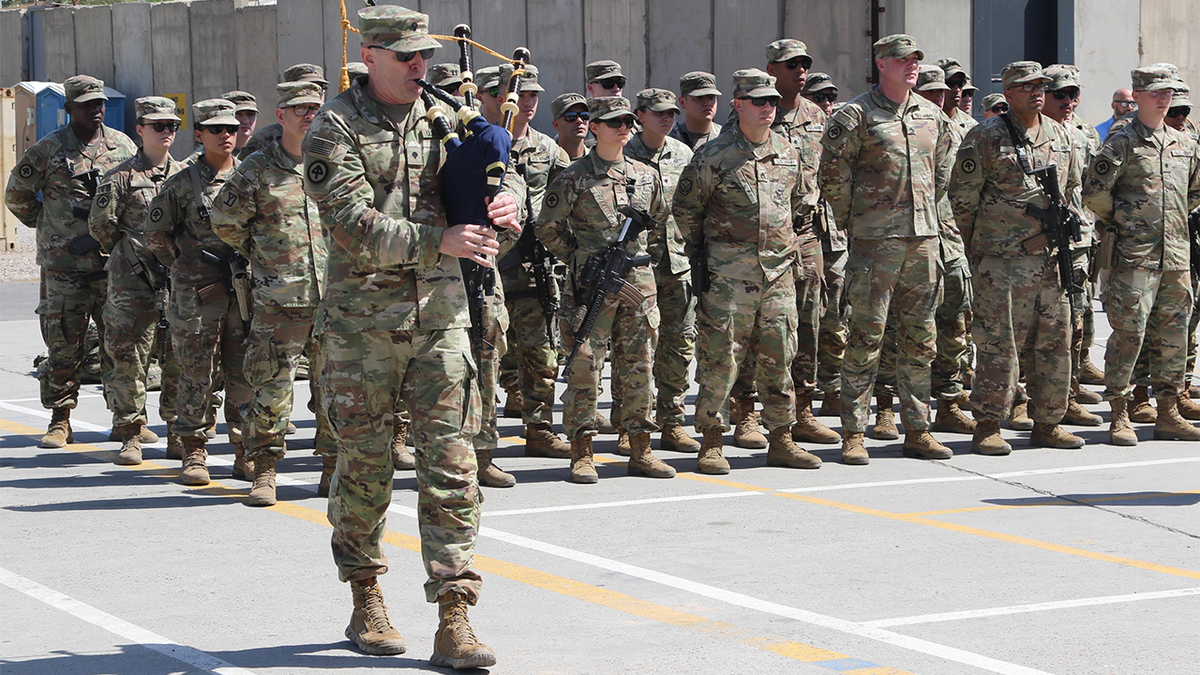
A U.S Army soldier assigned to 1st Battalion, 181st Infantry Regiment, 44th Infantry Brigade Combat Team, New Jersey National Guard, plays Amazing Grace on bagpipes during the Memorial Day ceremony at Union III in Baghdad, Iraq, May 27, 2024. (U.S. Army)
Rivers, Sanders and Moffett were all assigned to the 718th Engineer Company, an Army Reserve unit based in Fort Moore, Georgia, previously known as Fort Benning.
The Associated Press contributed to this report.
World
EU convenes Israel to discuss respect of human rights, ICJ ruling
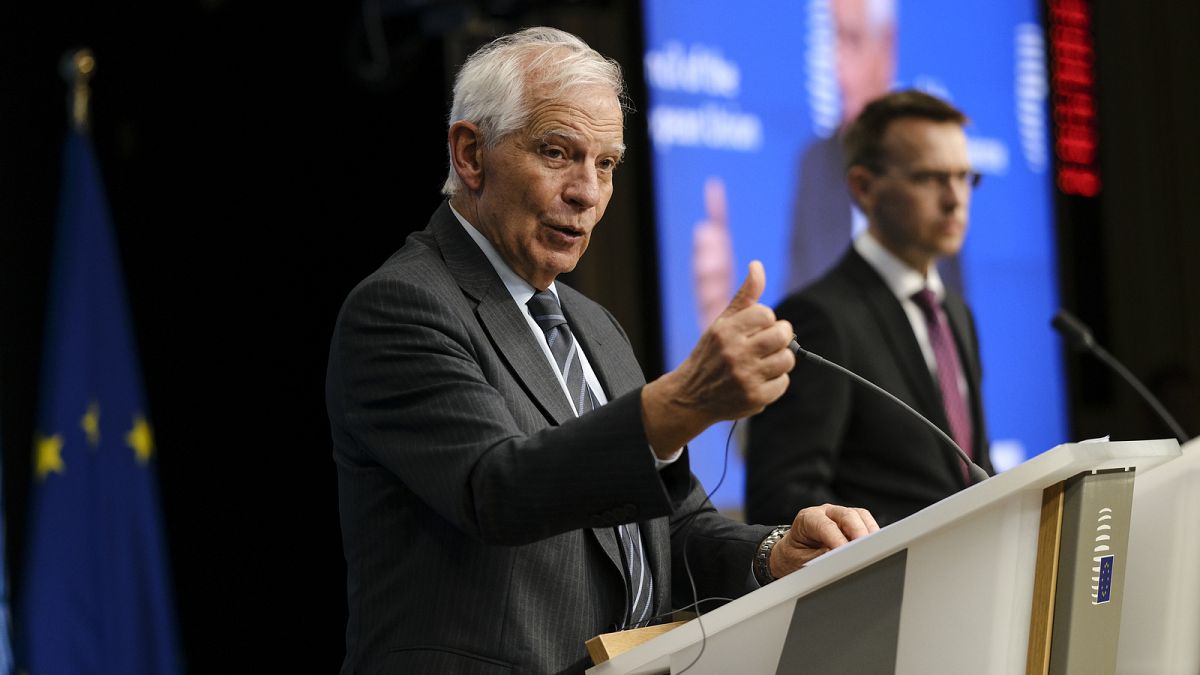
The breakthrough comes three month after Ireland and Spain first pressed on the EU executive to re-open its trade deal with Israel.
European Union foreign ministers unanimously agreed on Monday to call for an Association Council with Israel to discuss the country’s compliance with its human rights obligations under the EU-Israel trade deal, also known as the Association Agreement.
The bloc also intends to use the meeting to confront Netanyahu’s government about its compliance with Friday’s ruling by the International Court of Justice (ICJ), which ordered Israel to halt its intended military offensive in the city of Rafah.
The move comes three months after Spanish Prime Minister Pedro Sánchez and the then Taoiseach Leo Varadkar first made a plea for the urgent review of the EU-Israel Association Agreement, citing serious concerns over Israel’s military campaign in Gaza and potential violations of human rights and international law.
Article 2 of that agreement, struck in 2000, stipulates that the agreement is “based on respect for human rights and democratic principles.”
Europe is Israel’s main trading partner, accounting for just under a third of all commerce, meaning the Agreement is seen as a powerful tool for the bloc to exert pressure on Netanyahu’s war cabinet to refrain from its offensive in the war-torn Gaza Strip.
Despite the firm backing of human rights groups and the UN’s special rapporteur on Palestine, the EU had failed to garner political backing for the move until the breakthrough on Monday.
“We got the necessary unanimity to call for an Association Council with Israel to discuss the situation in Gaza (…) and the respect of human rights under the obligations that Israel has assumed under the Association Council and how they plan to implement the ruling of the court,” Borrell told reporters, referring to Friday’s ruling by the Hague-based court.
“But what we have seen since the court has issued its ruling (is) not the stop of military activities but on the contrary an increase in the military activities, an increase in the bombing and an increase in the casualties to the civilian people, as we have seen last night,” Borrell added.
On Sunday, an Israeli air strike on a camp of displaced Palestinians in the southern Gazan town of Rafah left at least 45 dead, including women and children, prompting global condemnation.
“The last figure seems to be around 40 people, including a small children being burned. I condemn this in the strongest terms. It proves that there is no safe place in Gaza,” Borrell said, describing the images, including those of burnt children, coming out of Rafah as “shocking.”
The IDF has since opened an investigation into the massacre, claiming it was targeting two senior Hamas officials.
EU foreign ministries have harshly criticised the attack, with the German foreign ministry saying the “images of charred bodies” are “unbearable.”
Bloc ups pressure on Israel amid diplomatic spats
Responding to the decision to convene an Association Council, Belgian foreign minister Hadja Lahbib said the move was a “strong signal.”
“We must ensure that our rules and values are respected by all, and above all by our partners like Israel. Our credibility depends on it,” Lahbib, whose government is a staunch supporter of the Palestinians, added.
Other foreign ministers, such as Slovenia’s Tanja Fajon, called for the bloc to go further by slapping sanctions on Israel for its continued violations of international law in its Gaza offensive.
“I strongly condemn Israel’s attack last night on the displaced Palestinians, in which many children were also burned to death,” Fajon, whose government is taking steps to recognise the State of Palestine, said on social media platform X.
“In Brussels (…) today I will stand up for respect for international humanitarian law and decision (of the) ICJ. In case of continuing violations, (the) EU must react uniformly and decisively, including sanctions,” Fajon added.
Borrell declined to comment on whether he believed his Israeli counterparts would agree to attend the Association Council, amid increasing diplomatic tensions with two member states – Ireland and Spain – which announced last Wednesday they would formally recognise the State of Palestine tomorrow, May 28.
A diplomatic row has since erupted, particularly between Israel and Borrell’s native Spain, with Israeli foreign minister Israel Katz issuing a statement Monday morning announcing his government would prohibit Spain from providing consular services to Palestinians in the West Bank.
Katz has also accused Spain’s recognition of Palestine as a “reward for terrorism.”
Borrell described the escalation as “everything but diplomatic.” “This is a completely unjustified and extreme verbal aggression,” he added.
The bloc’s top diplomat also acknowledged there was no unanimous appetite to consider sanctioning Israel for its actions in Gaza but suggested their stance could shift if Netanyahu’s government “continues to ignore” the ICJ’s ruling.
-

 Movie Reviews1 week ago
Movie Reviews1 week ago‘The Substance’ Review: An Excellent Demi Moore Helps Sustain Coralie Fargeat’s Stylish but Redundant Body Horror
-

 Politics1 week ago
Politics1 week agoTrump predicts 'jacked up' Biden at upcoming debates, blasts Bidenomics in battleground speech
-

 Finance1 week ago
Finance1 week agoSan Bernardino finance director claims she was fired after raising concerns about costly project
-

 News1 week ago
News1 week agoVideo: A Student Protester Facing Disciplinary Action Has ‘No Regrets’
-

 Movie Reviews1 week ago
Movie Reviews1 week ago‘Blue Sun Palace’ Review: An Intimate, Affecting and Dogma-Free Portrait of Chinese Immigrants in Working-Class New York
-

 Movie Reviews1 week ago
Movie Reviews1 week ago‘Rumours’ Review: Cate Blanchett and Alicia Vikander Play Clueless World Leaders in Guy Maddin’s Very Funny, Truly Silly Dark Comedy
-

 World1 week ago
World1 week agoPanic in Bishkek: Why were Pakistani students attacked in Kyrgyzstan?
-

 Culture1 week ago
Culture1 week agoFrom Dairy Daddies to Trash Pandas: How branding creates fans for lower-league baseball teams



